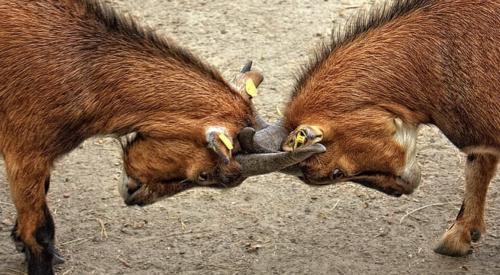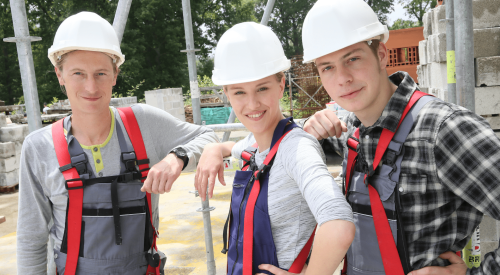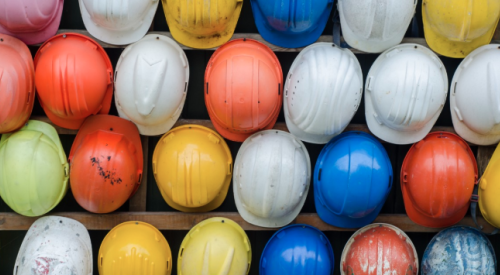| Classroom and on-the-job training helps Special Olympics athletes hone their building skills.
|
Houston-based giant U.S. Home was recently honored with the Outstanding Service from a Business/Corporation award from Special Olympics Texas.The home builder was recognized for its ongoing support of the nonprofit organization that provides year-round sports training and competition to 23,000 children and adults in Texas with mental retardation. Since 1998 when the company kicked off its work with Special Olympics Texas, the company has not only provided financial support and volunteers, but it has also trained Special Olympics athletes in home building trades.
Through Project Opportunity, a unique partnership between U.S. Home, Special Olympics Texas and Habitat for Humanity, U.S. Home provides hands-on skills training to individuals with mental retardation, who, in turn, use those skills to build homes for underprivileged families. As part of the learning process, more experienced athletes also help teach their peers.
Spearheaded by Bob Strudler, U.S. Home CEO and Vice Chairman and COO of Lennar, the program evolved out of a partnership between the three organizations in 1998. "Special Olympics asked us to be involved in the Jimmy Carter Work Project in ‘98. They wanted to build a Habitat home and needed some help. We got involved and it was such a thrill."
The most recent Project Opportunity endeavor was the construction of a Habitat home in northwest Houston. Thirty-five athletes participated in the construction, and according to Special Olympics area director for Houston, Renee Klovenski, at least a dozen of the athletes are actively involved twice a week in a program that allows them to practice and refine their newly acquired home building skills.
In the Houston project, U.S. Home volunteers worked side by side with Special Olympics athletes who learned valuable skills essential to the completion of the home including painting, plumbing, landscaping, wiring, drywall and trim work. "They were involved at every stage after the slab and framing work was done," says Strudler. "They get a great feeling to see something grow in front of their eyes and know that they contributed to it."
Klovenski notes that the movement from sports to building is a natural one for the athletes. "Through training and competition, athletes build confidence. Here there’s an added dimension — in addition to building that confidence, the athletes are learning a trade and may have the opportunity to get a good job."
She attributes much of the credit for giving Special Olympians that unique opportunity to Strudler and U.S. Home "They do a wonderful thing for a living by building homes, but to turn around and give Special Olympic athletes a chance to share in that and learn a trade is incredible."
Klovenski and some of the athletes involved in Project Opportunity plan to have a booth at the International Builders’ Show in Atlanta this February where they will share their experiences and demonstrate skills. The next home will be built in Tucson in late May, says Strudler, and the goal is to build nine Habitat homes by 2002.










